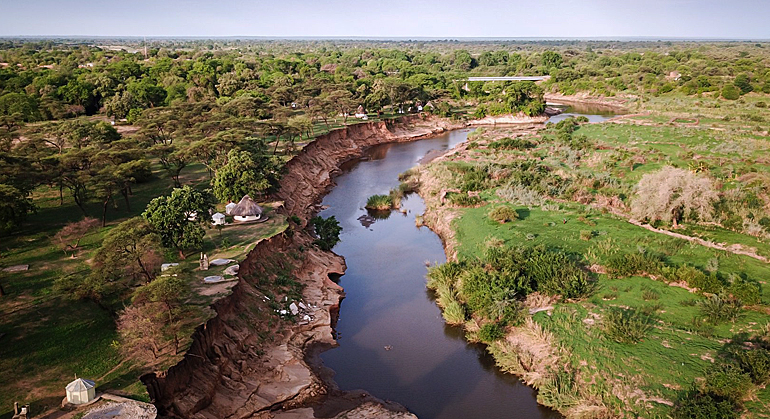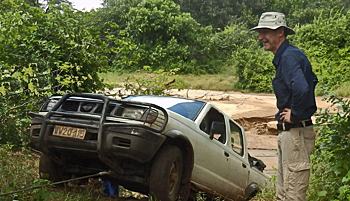Advanced mapping of Zambezi river by students to prevent floods and droughts
 Five students of the Delft University of Technology are in Zimbabwe to map and analyse the Zambezi river in cooperation with the University of Zimbabwe.
Five students of the Delft University of Technology are in Zimbabwe to map and analyse the Zambezi river in cooperation with the University of Zimbabwe.
The overall goal of this mapping is to be able to enhance the water, food and energy security in the Lower Zambezi river through a better understanding of the rainfall-runoff behaviour in the river catchment.
 Former Delft professor Huub Savenije spent much of his time studying the Zambezi river in great detail.
Former Delft professor Huub Savenije spent much of his time studying the Zambezi river in great detail.
Accurate flow estimates
In the Lower Zambezi, (Zambia, Zimbabwe and Mozambique) populations suffer frequently from severe floods and droughts. Dealing with these problems relies on the ability to accurately estimate the flows entering the river.
This is a major challenge because most of the rivers entering the Zambezi are ungauged, meaning there are no flow records.
A better understanding of the rainfall-runoff behaviour is crucial for a better operation of Kariba and Cahora Bassa dams, reducing flood hazard of affected communities and securing energy and agricultural production.
Advanced hydrological model
For that purpose, the research will develop a landscape and ecology-based hydrological model fed by remotely sensed rainfall and evaporation.
The latest innovations in water resources assessment will be used, such as drones for topography based river rating. Also Distributed Temperature Sensing (DTS) will be used for determining evaporation from indigenous forests. Accelerometers for interception measurement and micro-wave links are to determine the water content of vegetation. Improved dam operation will contribute to achieving the sustainable development goals on water, energy, environment, flood and human settlement.
The research project is carried out jointly by the University of Zimbabwe, Dutch water supply company Waternet and Delft university of technology, in close cooperation with end users Zimbabwe National Water Authority (Zinwa), Zambian Water Resources Management Authority (Warma) and Hydro Cahora Bassa (HCB).
(Photos: TU Delft)
Read also on this website
● Hydrologist Huub Savenije receives AGU award for his work in developing countries, 15 December 2017
● Dutch Relief Alliance funds 3.9 million euro to combat El Nino effects in Zimbabwe, 15 September 2016
● Country: Zimbabwe
More information
Delft University of Technology
Water management department
Faculty of civil engineering
Delft, the Netherlands
+31 15 27 89802
www.tudelft.nl/en



